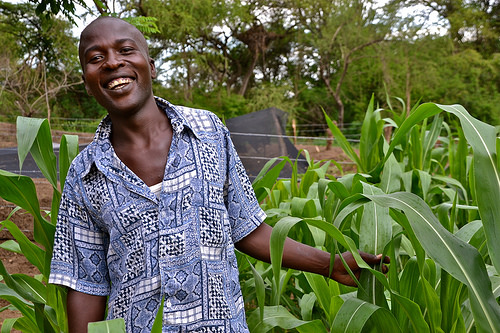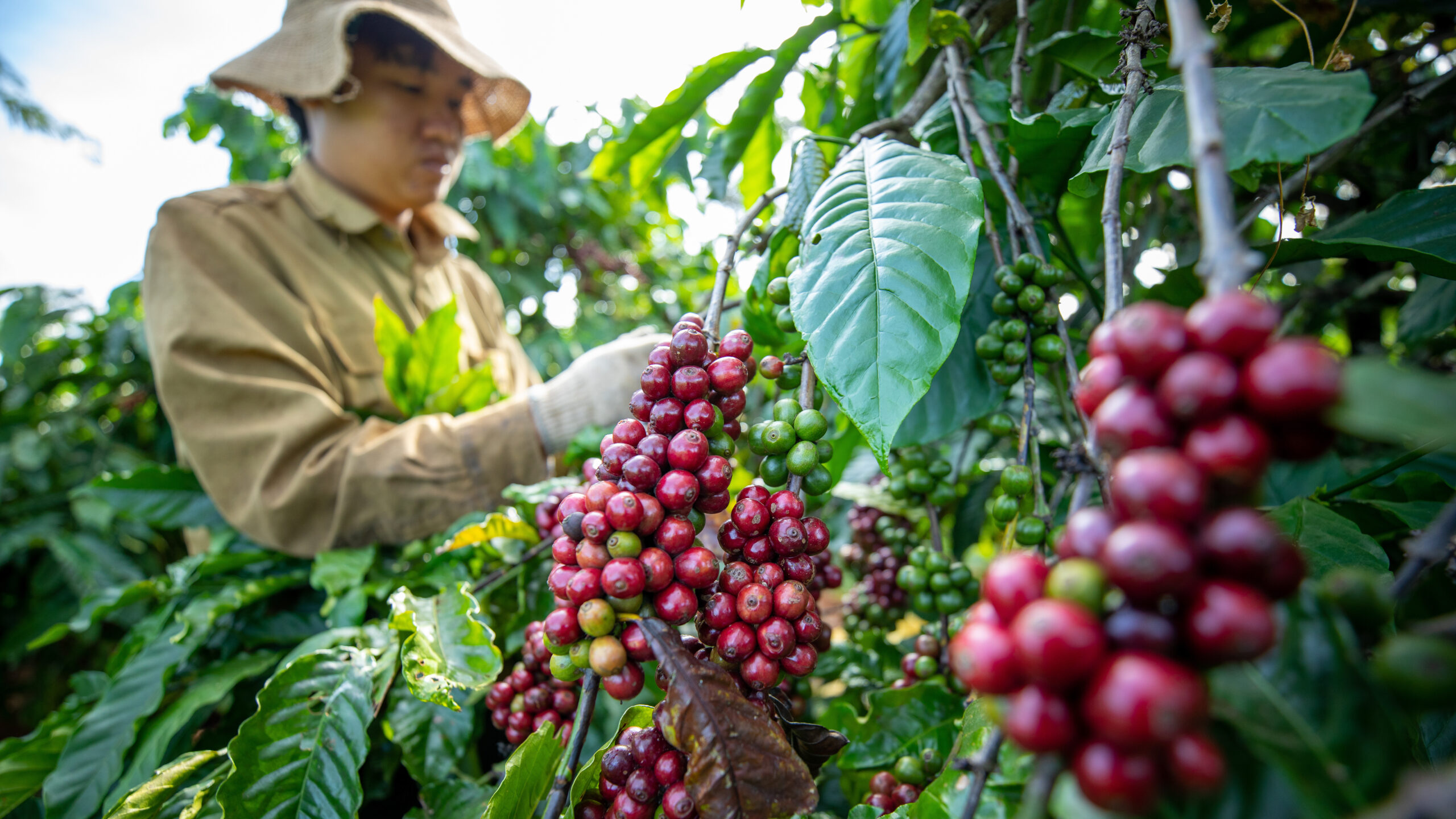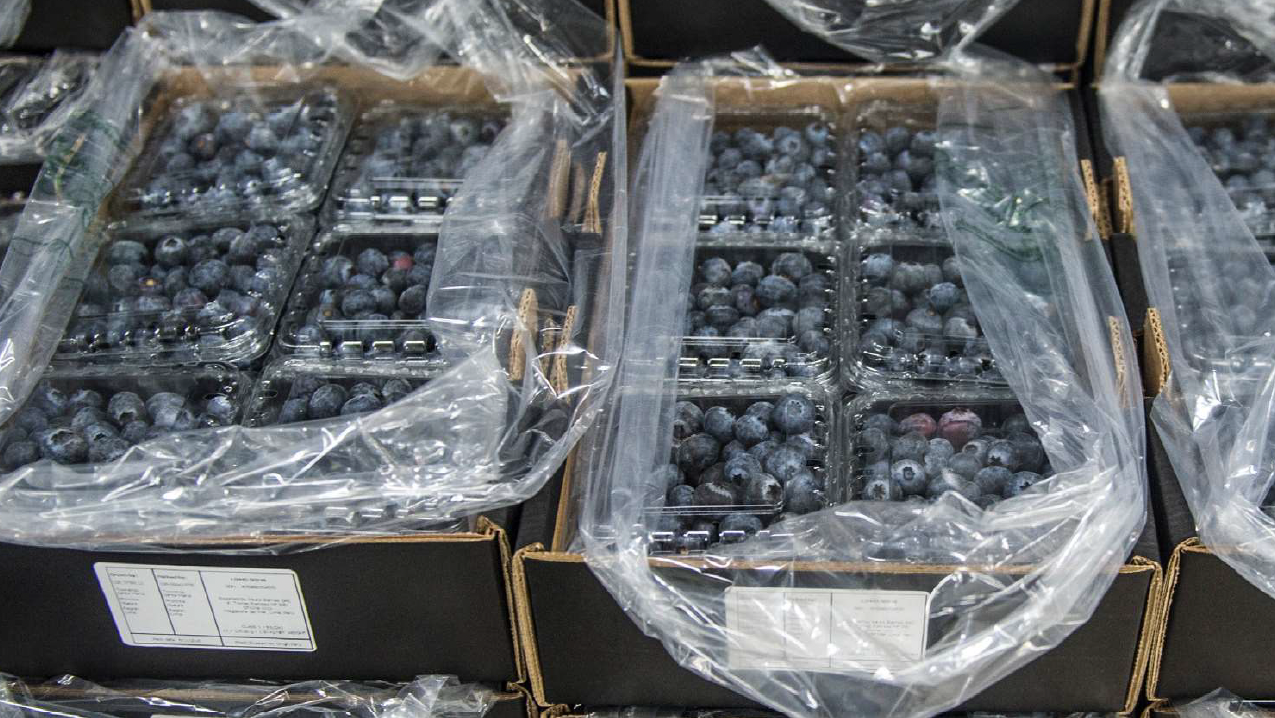One of a series of guest blog posts from leading voices in global development on achieving long-term sustainability and growth while ending hunger, poverty, and malnutrition. Read the previous post by Justin Yifu Lin here.
The number of young people between ages 15 and 24 is growing rapidly. The youth bulge is particularly pronounced in Africa and south Asia, where the youth population is expected to double in the next 30 years. As of 2012, 10 million young people in sub-Saharan Africa were entering the job market every year.
As the world population continues to grow, food production will need to increase by 60 percent to meet rising demand. Yet considering that the current global average age of farmers is over 60, the question is: who will feed the world in the future? Hunger and undernutrition also persist, and thus the need to accelerate progress—the central goal of Compact2025, for which I serve as a Leadership Council member—is ever more critical.
There is great potential for a demographic dividend, as the young generation can serve as a powerful resource for economic development and social progress, especially in Africa. Young people hold tremendous energy and creativity to not only contribute to agriculture, but also in addressing the major challenges facing humanity – hunger, poverty, and climate change. International institutions are highlighting the issue, bringing youth to the forefront of efforts toward sustainable development.
In my latest book, A Bucket of Water, I discuss the critical role youth will play in Africa’s future. There are great opportunities for entrepreneurship along the whole agri-food value chain to meet future needs in food security and nutrition. There will be need for workers in production, storage, conservation, processing, packaging, marketing, technology innovation, and transport among many others.
Yet young people face particular barriers that often lead to skepticism about farming as a viable future. Youth and other marginalized groups do not see farming as a business, as an economic enterprise. They also lack access to financial resources or collateral that are necessary to start a business. Many also lack access to modern communication technologies that would enable the exchange of important information. Without adequate education or opportunities in rural areas, many young men and women decide to leave to urban areas or foreign countries.
How can we, the current generation, help remove the barriers youth face and help them reach their —and thereby our world’s—full potential?
The key will be to develop rural areas to encourage young men and women to remain in their communities and pursue opportunities to improve their livelihoods and obtain decent work for greater prosperity. It is essential that the rural space is provided with basic infrastructure and social services, namely roads, electricity, running water, schools, health services, and more. Building vibrant rural economies can also contribute to addressing poverty and inequality associated with rapid urbanization and relieving pressure from cities with limited capacity for migration.
In order to support youth to prosper in rural areas, we need to work on a few key aspects. First, addressing the education deficit for young people, particularly those in rural areas, is necessary to better prepare youth for future labor market demands. Vocational training and apprenticeships are needed for youth to build relevant knowledge and skills for work or create jobs for themselves. The International Institute for Tropical Agriculture (IITA) with support from the International Fund for Agricultural Development (IFAD), for example, has helped identify and train young farmers by facilitating mentorships with agricultural entrepreneurs, or agripreneurs.
Secondly, supporting access to credit and financial services for youth farmers will address a major obstacle for young farmers. Banks often do not provide credit to potential farmers due to young age and perception of farming as non-viable businesses, or the lack of collateral held by the farmer. Providing financial services as well as financial literacy training can be important tools for youth farming and businesses.
In addition, access to information is crucial for farmers in the globalized era. Farmers will need better information about markets, weather, as well as opportunities to enhance their business. Platforms to disseminate information are also key for farmers to reach out to potential customers. Global Youth Innovation Network in Senegal utilizes information communication technologies (ICTs) to support rural women working in agriculture.
By supporting youth in these areas, farming can become an appealing future for young people, and developing county agriculture can become a viable business. It is vital to create an environment for future food producers to thrive and accelerate progress toward ending hunger and undernutrition.
It is with this vision that I established the Facility for Youth Development (FAYODE) Foundation to support the development of young Africans, particularly rural youth, through mentoring, capacity building, and investment in entrepreneurial skills in a wide range of productive activities.
There is a saying in Nigeria that when you go to the stream to fetch water, your bucket will be filled with water that is yours. No one can take the water that is meant for you, but first you must walk to the stream. However, walking to the stream is not always easy. African youth will need to fill their own buckets, but it is our imperative to remove the barriers that hold back the future farmers of our world.
Dr. Kanayo F. Nwanze is the Fifth President (Rtd) of International Fund for Agricultural Development (IFAD), Special Goodwill Ambassador on Zero Hunger, Africa Region, and CGIAR System Management Board’s First Global Ambassador. He is a Leadership Council member for Compact2025. This piece also appears on the Compact2025 site.







